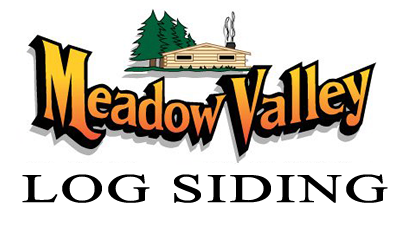Understanding Log Home Terms of Service: A Comprehensive Guide
1. Introduction
Log homes have experienced a remarkable resurgence in popularity over the past few decades. Their unique charm, rustic aesthetics, and sustainable building practices have drawn many homeowners and builders alike. However, amidst this growing trend, it is essential to understand the log home terms of service that govern transactions and interactions in the log home industry. These terms are not just legal jargon; they protect both buyers and sellers and ensure a smooth construction process.
In this comprehensive guide, we will explore the intricacies of log home terms of service, their historical context, how they work, and their significance in today’s market. Whether you are a homeowner considering a log home for your next project or a contractor looking to refine your understanding of industry regulations, this article will provide valuable insights. By the end, you will appreciate the critical role that clear terms of service play in fostering trust and clarity in the log home building process.
2. What is Log Home Terms of Service?
Definition
Log home terms of service refer to the legal agreements that outline the responsibilities, rights, and obligations of all parties involved in the construction, sale, and maintenance of log homes. These terms typically cover aspects such as warranties, payment schedules, and dispute resolution processes, ensuring that both parties are on the same page throughout their engagement.
Historical Context
The concept of terms of service is not new; it has evolved alongside the construction industry itself. In the early days of log home construction, informal agreements were common. However, as the industry grew and regulations became more complex, the need for formalized terms became apparent. By establishing clear guidelines and expectations, these terms help minimize misunderstandings and disputes.
Importance of Log Home Terms of Service
Clear log home terms of service are crucial for several reasons:
- Protection: They safeguard the interests of both buyers and sellers, ensuring that all parties know their rights and responsibilities.
- Transparency: With well-defined terms, misunderstandings can be minimized, fostering a smoother transaction process.
- Legal Compliance: Adhering to industry regulations is vital, and clear terms help ensure compliance.
Log Home Terms of Service in the Context of the Construction Industry
In the construction industry, clear terms of service are indispensable. They align with various regulations and standards, ensuring that all parties understand the legalities involved in building a log home. This alignment helps maintain quality standards and protects consumers.
Key Players or Contributors
Several organizations and legal entities play a vital role in shaping the log home industry. For example, industry associations often provide guidelines and best practices for terms of service, helping to raise the bar for quality and accountability.

3. How Do Log Home Terms of Service Work?
The Mechanics of Log Home Terms of Service
Understanding how log home terms of service function can help buyers and sellers navigate the complexities of the log home market. Typically, these terms include:
- Scope of Work: A detailed description of the services to be provided.
- Payment Terms: Specifics regarding payment schedules, deposits, and final payments.
- Warranties and Guarantees: Information on what warranties are offered and the duration of coverage.
- Dispute Resolution: A clear process for resolving disagreements, whether through mediation, arbitration, or litigation.
Technological Foundations of Log Home Terms of Service
In today’s digital era, log home terms of service often incorporate technology. Electronic contracts and digital signatures have streamlined the process, making it easier for parties to review and agree to terms. This technological integration enhances efficiency and security, allowing for quicker transactions and reducing the likelihood of errors.
Real-World Applications of Log Home Terms of Service
The practical implications of these terms are significant. For instance, if a builder fails to meet the agreed-upon specifications, the terms of service provide a framework for the homeowner to seek recourse. Additionally, these terms can outline procedures for addressing construction delays or material shortages, ensuring all parties are informed and protected.
Case Studies/Examples of Log Home Terms of Service in Action
Consider a scenario where a homeowner hires a contractor to build a log cabin. The terms of service might stipulate that the contractor must use specific types of logs and complete the project within a set timeframe. If the contractor fails to meet these conditions, the homeowner has grounds to seek legal remedies based on the established terms.
Benefits and Drawbacks of Log Home Terms of Service
While the advantages are numerous, it’s also essential to acknowledge potential drawbacks.
Pros:
- Legal Protection: Clearly defined terms protect against misunderstandings and disputes.
- Clarity: Everyone involved understands their obligations and expectations.
Cons:
- Complexity: For some, navigating these terms may feel overwhelming, particularly if legal jargon is involved.
- Cost: Drafting comprehensive terms may require legal assistance, adding to project expenses.
4. The Benefits of Log Home Terms of Service
Why Use Log Home Terms of Service?
Understanding and utilizing log home terms of service can greatly benefit all parties involved. Here are some key reasons:
- Legal Protection: These terms create a legally binding agreement, providing a safety net for both parties.
- Clarity: Clear terms help reduce ambiguity, ensuring everyone knows what to expect.
Improved Efficiency and Productivity
Having well-defined terms can streamline operations. When all parties understand their roles and responsibilities, projects can proceed more smoothly. This efficiency can lead to quicker completion times and fewer delays.
Cost-Effectiveness
Investing in clear log home terms of service can yield significant financial benefits. By outlining responsibilities and expectations, these terms can help avoid costly disputes. For example, a homeowner might save money by ensuring that a contractor is held accountable for delays, thus preventing additional costs.
Examples of Cost Savings from Log Home Terms of Service
Consider a situation where a contractor neglects to include necessary materials in their initial quote. If the terms of service clearly outline the materials required, the homeowner can avoid unexpected costs and ensure that the project stays within budget.
Enhanced User Experience with Log Home Terms of Service
Clear terms not only protect parties but also enhance the overall experience. Homeowners often feel more secure knowing their rights are protected, leading to greater satisfaction with the building process.
5. Challenges in Understanding Log Home Terms of Service
Common Misconceptions
Many individuals have misconceptions about log home terms of service. Some believe that these terms only favor the seller, while others think they are unnecessary legal formalities. In reality, these terms are designed to protect both parties and facilitate a smooth transaction.
Navigating Legal Jargon
One of the most significant challenges in understanding these terms is the legal language often used. Homeowners may feel overwhelmed by complex vocabulary, making it difficult to grasp the full implications of the terms.
The Importance of Legal Counsel
To navigate these challenges, seeking legal counsel is advisable. A qualified attorney can help clarify terms and explain their implications, ensuring that all parties understand their rights and obligations.
6. The Future of Log Home Terms of Service
Trends to Watch
As the log home industry continues to evolve, so will the log home terms of service. Emerging trends, such as the integration of smart technologies and sustainable practices, may influence how these terms are drafted and enforced.
The Role of Technology
With the rise of digital platforms for home construction and sales, technology will play a crucial role in the future of log home terms of service. Electronic contracts and blockchain technology may enhance security and transparency, making transactions even more efficient.
Consumer Education
As consumers become more aware of their rights and responsibilities, there will be an increasing demand for clear and accessible terms of service. This shift will likely lead to more straightforward language and better education on the part of both sellers and buyers.
Conclusion
Understanding log home terms of service is essential for anyone involved in the log home industry, whether as a buyer, seller, or contractor. These terms provide a framework that protects all parties, fosters transparency, and enhances the overall experience of building or purchasing a log home.
As you navigate the complexities of the log home market, remember the importance of clear agreements and the benefits they bring. By investing time in understanding these terms, you can ensure a smoother, more enjoyable process and make informed decisions that align with your goals.
For further insights, feel free to explore related resources such as log siding design ideas or connect with log siding contractors near me to find trusted professionals. Understanding the landscape of log home terms of service will empower you to make choices that benefit your construction or renovation project.
Resource Links:
1. Log Home Living – Comprehensive terms of service outlining user agreements and site usage policies.
2. Log Homes – Detailed terms and conditions for users engaging with the site and its resources.
3. Log Home Privacy Policy – Information regarding privacy practices and user data management in relation to terms of service.




0 Comments